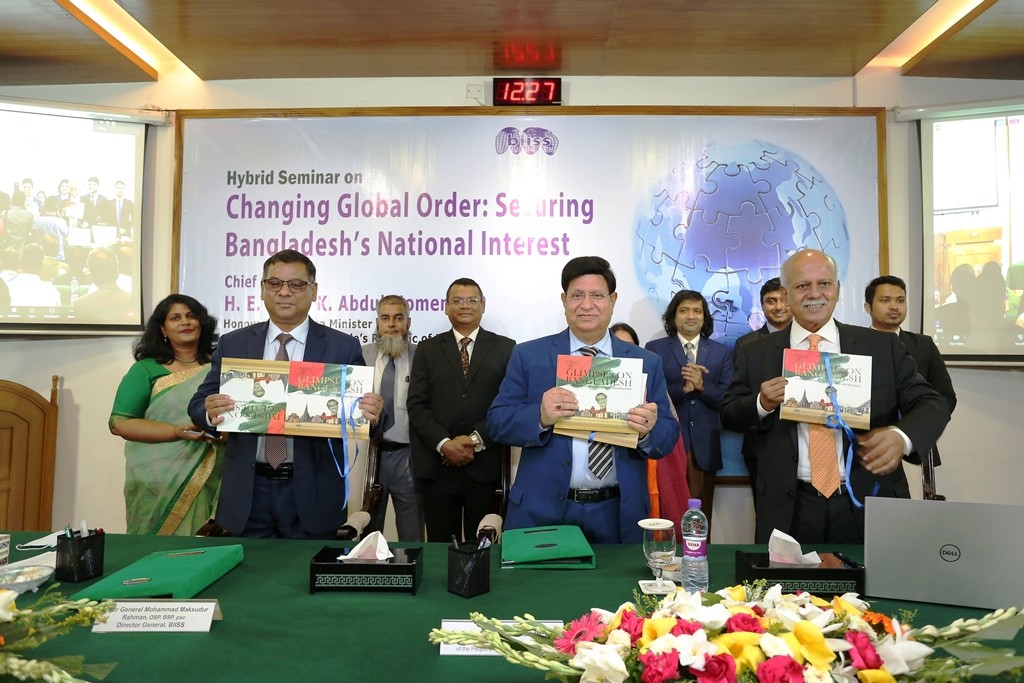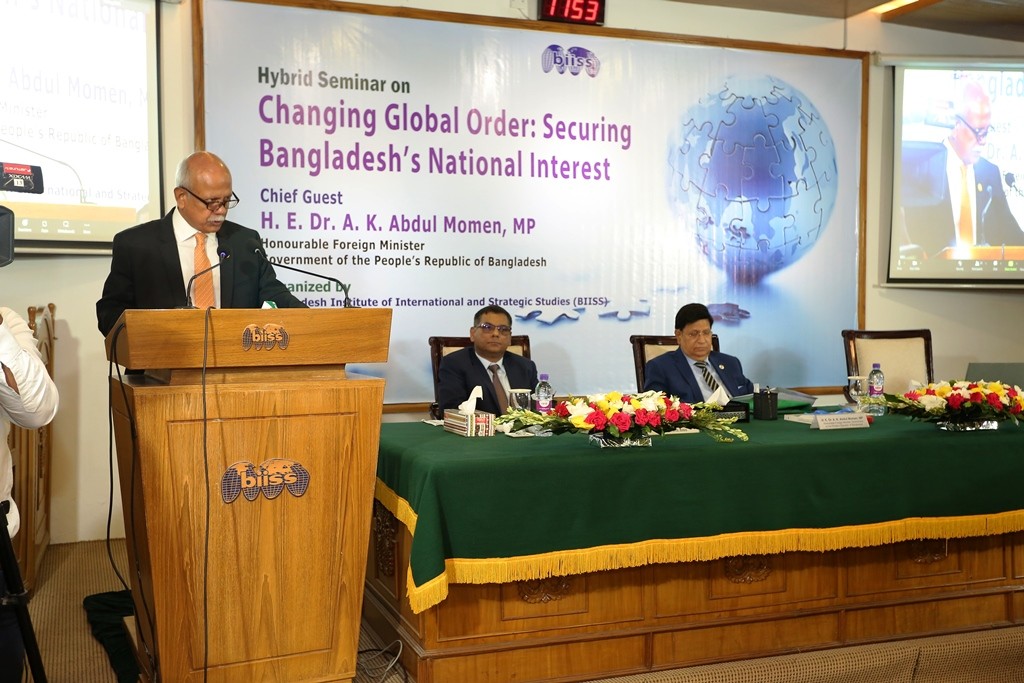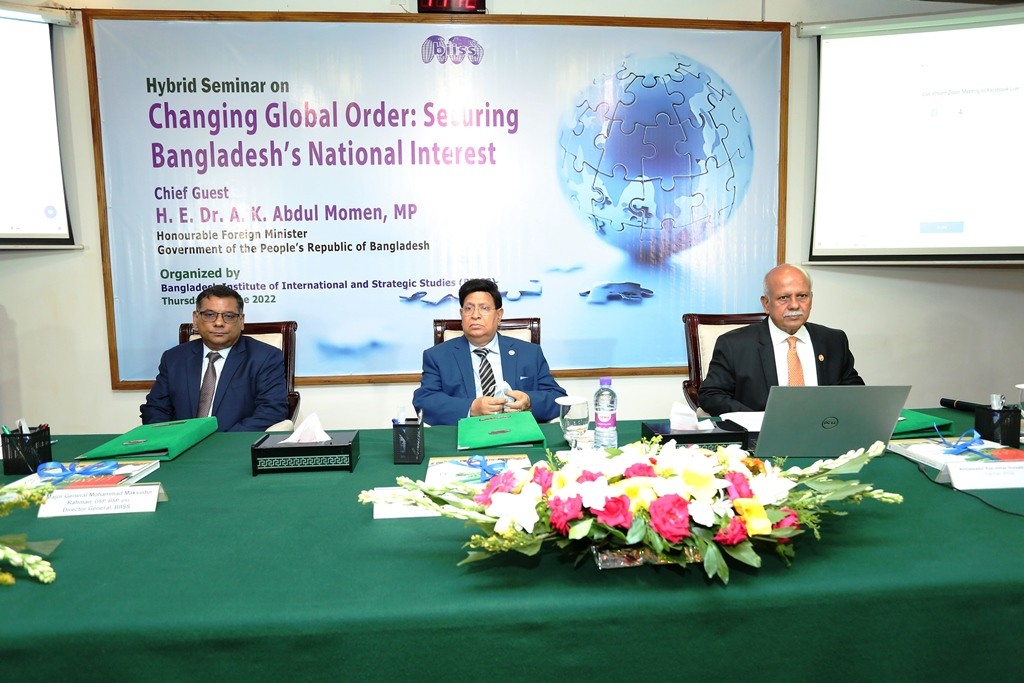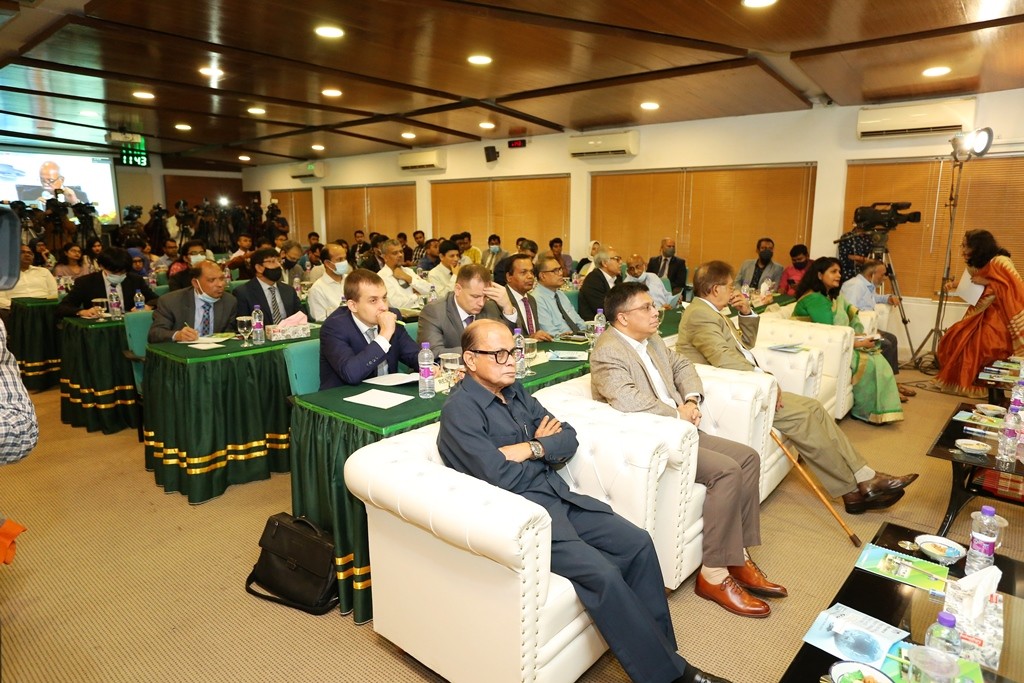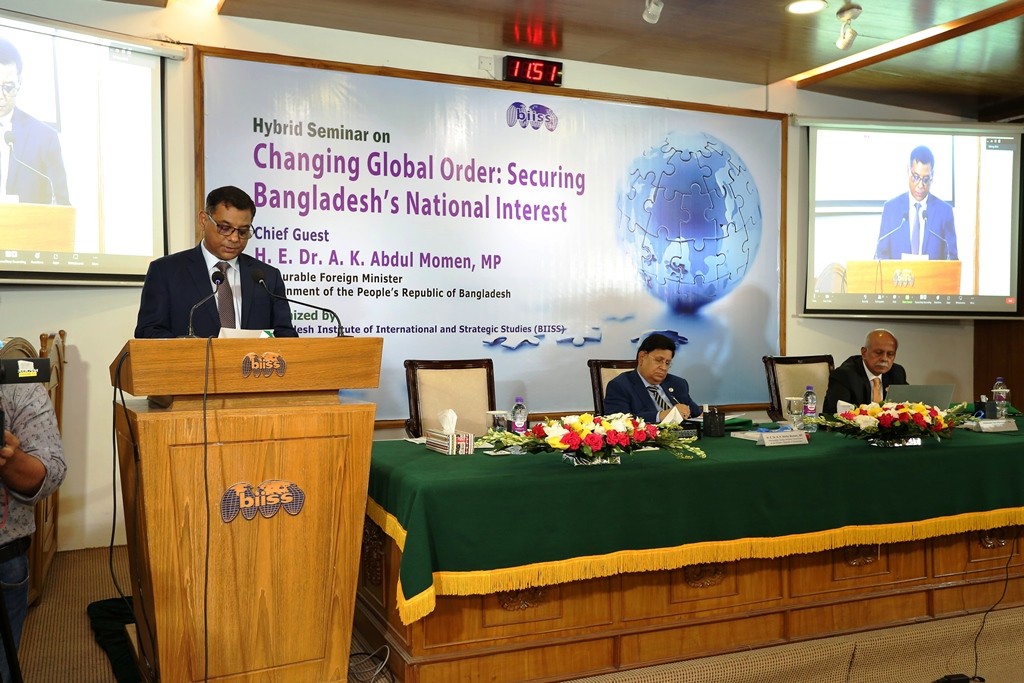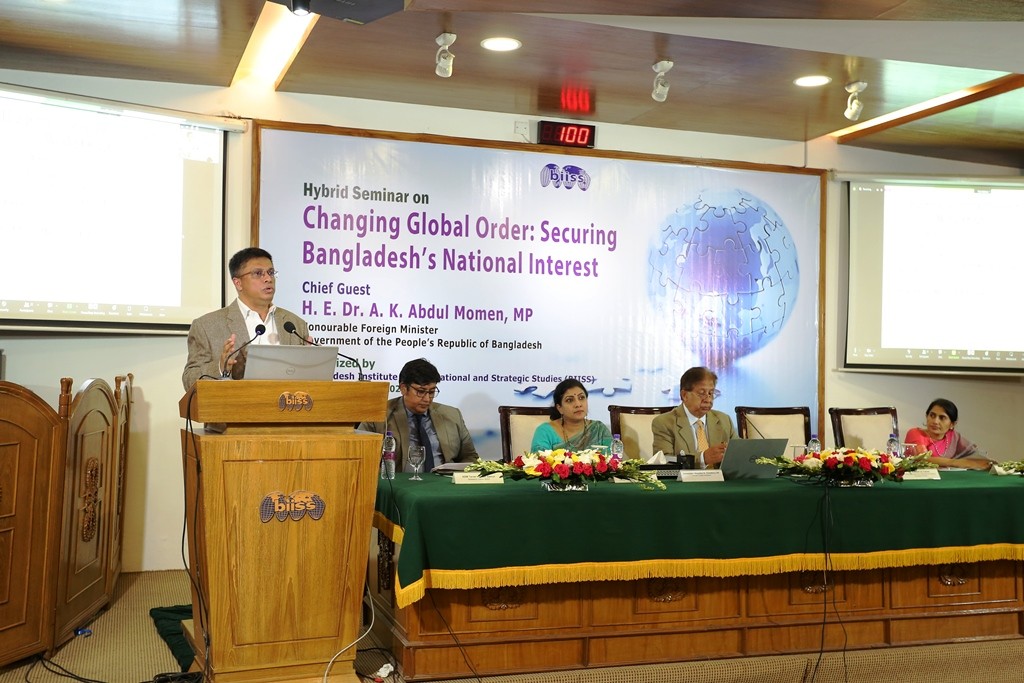Hybrid Seminar on “Changing Global Order: Securing Bangladesh’s National Interest” on 16 June 2022
DATE: 2022-06-16
Bangladesh Institute of International and Strategic Studies (BIISS) organized a Hybrid Seminar on “Changing Global Order: Securing Bangladesh’s National Interest” on Thursday, 16 June 2022 at the BIISS auditorium. H.E. Dr. A. K. Abdul Momen, MP, Honourable Foreign Minister, Government of the People’s Republic of Bangladesh, graced the occasion as the chief guest. Ambassador Kazi Imtiaz Hossain, PAA, Chairman, BIISS, chaired the inaugural session and Major General Mohammad Maksudur Rahman, OSP, BSP, psc, Director General, BIISS, delivered the welcome address.
In his welcome remarks, Major General Mohammad Maksudur Rahman highlighted the uncertainties related to the changing nature of global order and focused on the importance of balancing the emerging realities and enhancing cooperation by minimizing competition among the great powers. Despite uncertainties due to the changing global order, Bangladesh has maintained a policy of mutual respect and non-interference and nurtured friendly relations with the global community through its principle of "friendship to all, malice to none". In this regard, he further added that even though Bangladesh is maintaining a good balance, the country needs to monitor international changes carefully so that it can meet new challenges that may arise due to the shift in the global order.
As the Honourable Chief Guest of the Seminar, H.E. Dr A. K. Abdul Momen, MP, Honourable Foreign Minister, Government of the People’s Republic of Bangladesh, stated that the growing multipolarity of the global order brings inunique opportunity for Bangladesh. He affirmed to the audience that Bangladesh's foreign policy has been well-balanced by maintaining a neutral position at the global level. He also said that Bangladesh would continue to build good relationships with its key neighbours and development partners in order to strengthen regional multilateralism and reduce the risk of fragmentation from the emerging competing blocs.
In his remarks, Ambassador Kazi Imtiaz Hossain, Chairman, BIISS said that, due to the changing global order, Bangladesh needs to establish its goals while keeping in mind its basic national interests, including stable economic growth and development priorities of the country. Furthermore, he added that given such a shift in the global order, ensuring the export driven-market and retaining remittance flow needs to be given utmost priority. He concluded that Bangladesh must make the best policy choices to ensure food and environmental security, including increasing domestic food production and playing a more significant role in battling climate change.
Ambassador Shamsher M. Chowdhury, BB, Former Foreign Secretary, chaired the working session and delivered his introductory remarks.
Dr Rashed Uz Zaman, Professor, Department of International Relations, University of Dhaka, presented “Transitions in International Order: South Asian Perspective”. In his presentation, the main focus was on the concept of international order and the pitfalls of thinking in advance and acting on that assumption. He used the example of the “Concert of Europe” to demonstrate his points.
Dr Nazneen Ahmed, Country Economist and Head of Policy and Strategic Advisory Unit, UNDP, Bangladesh presented a paper on “Bangladesh’s LDC Graduation in Shifting World Order: Opportunities and Challenges”. Her presentation was focused on Bangladesh’s development journey, and the main challenges the country is about to face post-LDC graduation and how Bangladesh can formulate a smooth transition strategy.
Dr Razia Sultana, Research Fellow, BIISS, presented her paper on “Putting the National Interest First: Bangladesh’s Position in Changing Global Scenario”. Dr Sultana talked about the concept of national interest and its core elements from the national, regional and international levels. She also focused on how Bangladesh can rethink its position to optimise its national interest.
SM Tarek Hassan Semul, Research Fellow, BIISS, presented a paper on “Emerging Constellations in the Indo-Pacific: Bangladesh’s Foreign Policy Predicaments” and he discussed how there are changes in geopolitics such as the rise of middle powers and polarization and globalization. He also talked about changes in the Indo-pacific region and how Bangladesh has to adapt to that situation.
In the Hybrid Seminar, a book launching ceremony was held. The book which was unveiled in the Seminar was titled: “Glimpses on Bangladesh-A Country of Hope, Love, Courage and Resilience”. This book is an attempt of BIISS to exhibit and glorify Bangladesh to the international community. At the juncture of 50
years of independence, the book is expected to be an essential document for those who want to know about Bangladesh and its progress as a whole.
Senior officials from different government ministries, members of the diplomatic community, former ambassadors, senior military officials, media, academia, researchers, faculties and students from different universities, and representatives from various international organizations participated in the Seminar and they shared their valuable insights in the open discussion session.

